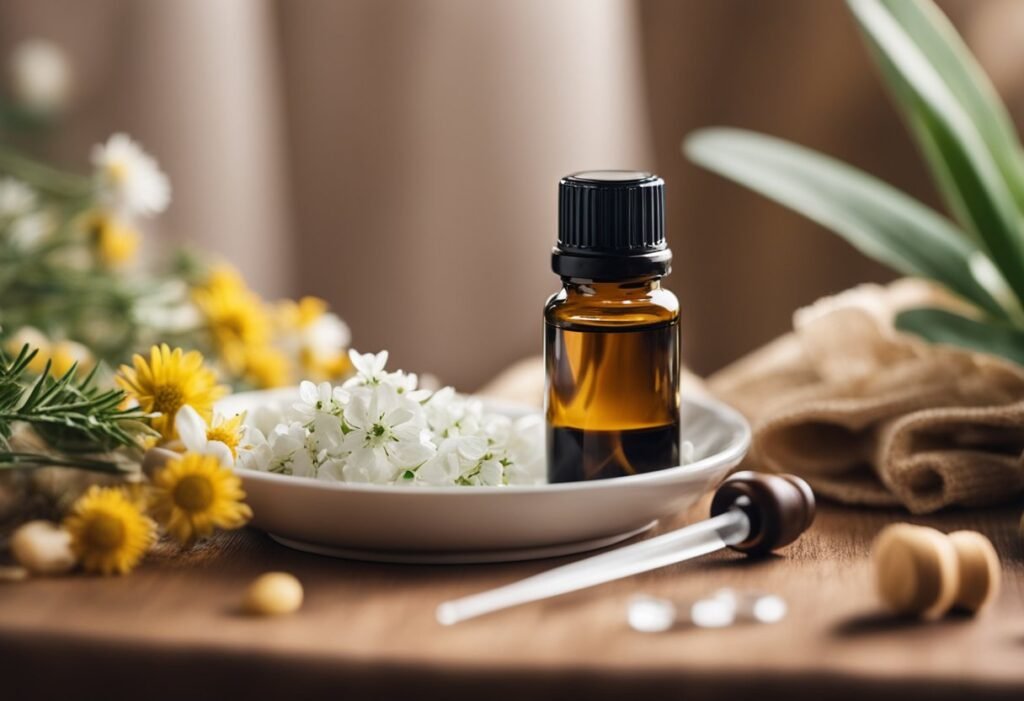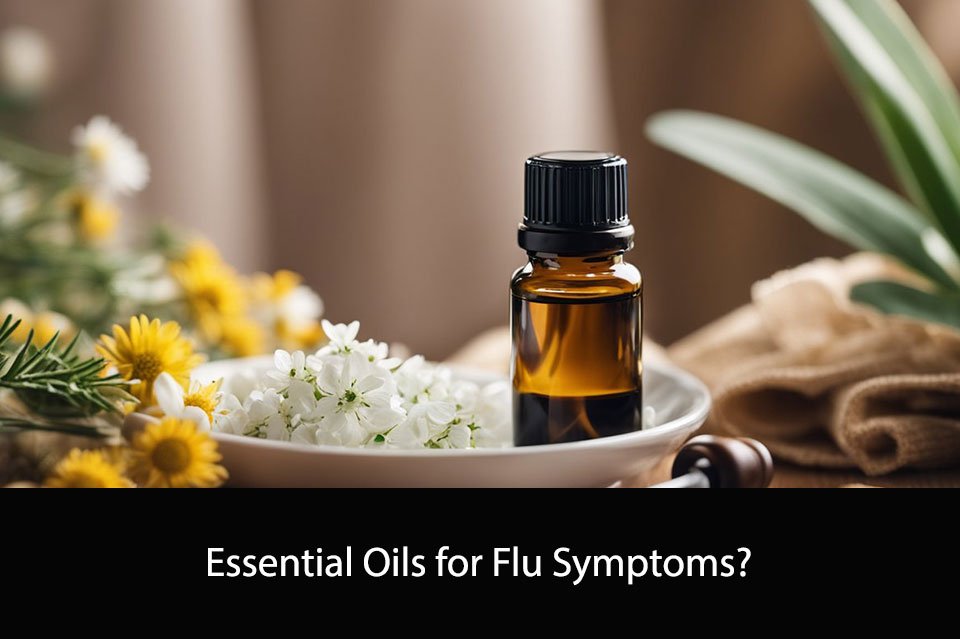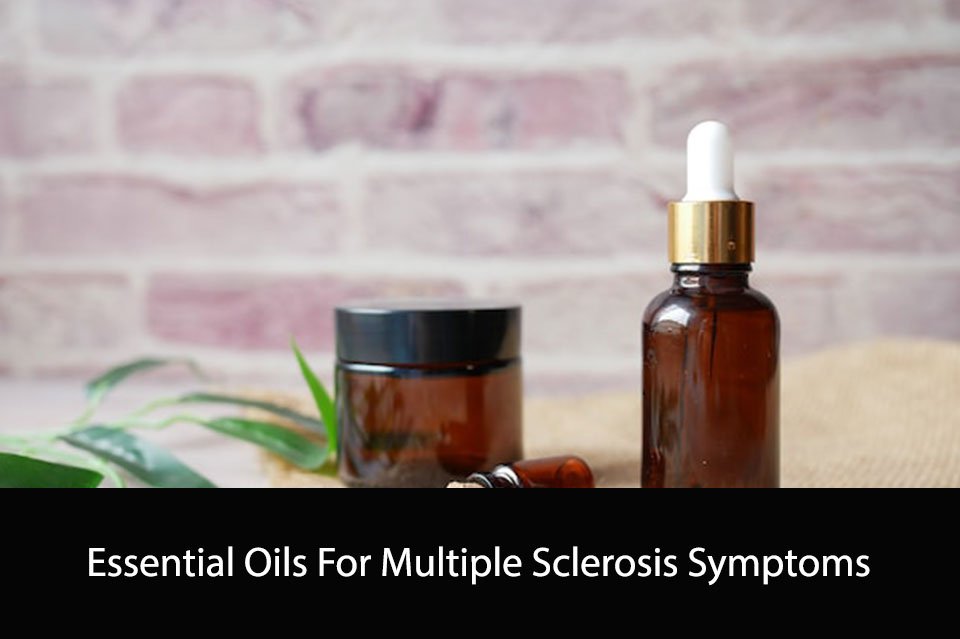Essential oils have been used for centuries for their therapeutic benefits. They are extracted from plants and have been found to have various healing properties. One area where essential oils have gained popularity is in the treatment of flu symptoms. In this article, we will explore the use of essential oils for flu symptoms and how they can help alleviate some of the discomfort associated with the flu.
Flu symptoms can be quite debilitating and can include fever, cough, sore throat, body aches, and fatigue. While there is no cure for the flu, there are ways to manage the symptoms. Essential oils are one such way. They can help boost the immune system, reduce inflammation, and relieve pain. We will discuss some of the most effective essential oils for flu symptoms and how to use them safely and effectively.
Understanding Essential Oils

Essential oils are highly concentrated plant extracts that have been used for centuries for their therapeutic benefits. They are extracted from various parts of plants, including leaves, flowers, stems, and roots. Essential oils are known for their ability to support the body’s natural healing processes and promote overall wellness.
When it comes to flu symptoms, essential oils can help alleviate symptoms such as congestion, coughing, and headaches. Some essential oils also possess antiviral and antibacterial properties that can help fight off the flu virus.
It’s important to note that essential oils should never be ingested and should always be diluted before use. Essential oils are highly concentrated and can cause skin irritation or other adverse reactions if not used properly.
To use essential oils for flu symptoms, they can be diffused in a room using a diffuser or added to a carrier oil and applied topically to the skin. Some popular essential oils for flu symptoms include:
- Eucalyptus: Known for its ability to relieve congestion and coughing.
- Peppermint: Can help alleviate headaches and promote clear breathing.
- Tea Tree: Possesses antiviral and antibacterial properties that can help fight off the flu virus.
- Lemon: Can help boost the immune system and promote overall wellness.
It’s important to consult with a healthcare professional before using essential oils, especially if you have any underlying health conditions or are pregnant or nursing. With proper use, essential oils can be a natural and effective way to alleviate flu symptoms and promote overall wellness.
The Power of Aromatherapy

Aromatherapy is a powerful and natural way to alleviate flu symptoms. Essential oils derived from plants can help boost the immune system, reduce inflammation, and relieve congestion. When inhaled or applied topically, essential oils can provide relief from symptoms such as fever, cough, sore throat, and body aches.
One of the most effective ways to use essential oils for flu symptoms is through inhalation. This can be done by diffusing oils in a room or by adding a few drops to a bowl of hot water and inhaling the steam. Some of the best oils to use for inhalation include eucalyptus, peppermint, and tea tree. These oils can help clear the sinuses, reduce inflammation, and provide a cooling sensation that can help relieve fever.
Another way to use essential oils for flu symptoms is through topical application. Oils such as lavender, chamomile, and frankincense can be applied to the chest, back, or feet to help reduce inflammation and relieve muscle aches. When using essential oils topically, it is important to dilute them with a carrier oil such as coconut or jojoba oil to prevent skin irritation.
In addition to their physical benefits, essential oils can also have a positive impact on mental and emotional well-being. Oils such as lavender, bergamot, and ylang-ylang can help reduce stress and anxiety, which can be especially beneficial during times of illness.
Overall, aromatherapy is a safe and effective way to alleviate flu symptoms and promote overall wellness. By using essential oils, we can harness the power of nature to support our bodies and minds during times of illness.
Essential Oils for Flu Symptoms

Eucalyptus Oil
Eucalyptus oil is known for its powerful antiviral and decongestant properties. It can help to reduce inflammation and clear nasal passages, making it easier to breathe. To use eucalyptus oil for flu symptoms, add a few drops to a diffuser or mix with a carrier oil and apply to the chest and neck area.
Peppermint Oil
Peppermint oil is a natural analgesic and can help to relieve headaches and muscle aches associated with the flu. It also has antiviral properties that can help to fight off the virus. To use peppermint oil for flu symptoms, add a few drops to a diffuser or mix with a carrier oil and apply to the temples and back of the neck.
Tea Tree Oil
Tea tree oil is a powerful antiseptic and can help to boost the immune system. It can also help to relieve congestion and coughing associated with the flu. To use tea tree oil for flu symptoms, add a few drops to a diffuser or mix with a carrier oil and apply to the chest and back.
Lemon Oil
Lemon oil is rich in vitamin C and has antiviral properties that can help to fight off the flu virus. It can also help to boost the immune system and relieve fatigue. To use lemon oil for flu symptoms, add a few drops to a diffuser or mix with a carrier oil and apply to the chest and neck area.
Lavender Oil
Lavender oil is known for its calming and relaxing properties. It can help to relieve anxiety and promote restful sleep, which is important for the body to heal. It also has antiviral properties that can help to fight off the flu virus. To use lavender oil for flu symptoms, add a few drops to a diffuser or mix with a carrier oil and apply to the temples and back of the neck.
Overall, essential oils can be a helpful addition to your flu symptom management plan. However, it’s important to remember that they should not be used as a substitute for medical treatment. If your symptoms are severe or persist for more than a few days, be sure to consult with a healthcare professional.
How to Use Essential Oils Safely
When it comes to managing flu symptoms, essential oils can be a natural and effective way to help alleviate some of the discomforts associated with the illness. Here are some of the essential oils that we recommend for flu symptoms:
When using essential oils for flu symptoms, it is important to keep in mind that they are highly concentrated and potent. Therefore, it’s crucial to use them safely and responsibly to avoid any adverse reactions. Here are some guidelines to follow:
- Dilute the essential oils: Essential oils should always be diluted with a carrier oil before applying to the skin. This helps to reduce the risk of skin irritation or sensitization. A general rule of thumb is to use 1-2 drops of essential oil per teaspoon of carrier oil.
- Use a diffuser: Using a diffuser is a safe and effective way to enjoy the benefits of essential oils. It disperses the oils into the air, allowing you to inhale them without direct contact with your skin.
- Avoid ingesting essential oils: Ingesting essential oils can be dangerous and should only be done under the guidance of a trained professional. Essential oils are highly concentrated and can cause serious harm if ingested in large amounts.
- Keep essential oils away from children and pets: Essential oils should be kept out of reach of children and pets. Ingesting or inhaling essential oils can be harmful to their health.
- Check for allergies: Before using any essential oil, it’s important to check for allergies. Apply a small amount of the diluted oil to a small area of skin and wait for 24 hours to see if any adverse reactions occur.
By following these guidelines, you can safely and effectively use essential oils to help alleviate flu symptoms. However, if you experience any adverse reactions, stop using the oils immediately and seek medical attention if necessary.
Precautions and Side Effects
When using essential oils for flu symptoms, it’s important to take certain precautions to ensure safe and effective use. Here are some important things to keep in mind:
- Essential oils should always be diluted before use. Undiluted oils can cause skin irritation or even chemical burns. We recommend diluting essential oils in a carrier oil such as coconut oil, almond oil, or jojoba oil.
- Always patch test a diluted essential oil on a small area of skin before using it more widely. This can help you identify any potential allergic reactions or sensitivities.
- Some essential oils should be avoided during pregnancy or if you have certain medical conditions. For example, peppermint oil should not be used during pregnancy or by people with epilepsy.
- Essential oils should never be ingested unless under the guidance of a qualified healthcare professional. Ingesting essential oils can be toxic and cause serious health problems.
While essential oils can be a natural and effective way to alleviate flu symptoms, they can also have side effects when used improperly. Here are some potential side effects to be aware of:
- Skin irritation or allergic reactions
- Headaches or dizziness
- Nausea or vomiting
- Respiratory issues such as coughing or wheezing
If you experience any of these side effects, discontinue use of the essential oil and seek medical attention if necessary. It’s also important to note that essential oils should never be used as a substitute for medical care. If you have a severe case of the flu or any other medical condition, please consult with your healthcare provider before using essential oils.
Conclusion

We hope this article has provided useful information on how essential oils can help alleviate flu symptoms. While essential oils have been used for centuries as a natural remedy, it’s important to remember that they should not replace medical treatment.
Some essential oils have antiviral properties and can help boost the immune system, such as eucalyptus, tea tree, and peppermint oil. Other oils, such as lavender and chamomile, can help with relaxation and sleep, which is important for recovery.
When using essential oils, it’s important to dilute them properly and use them as directed. Some oils can be toxic if ingested or used improperly, so always do your research and consult with a healthcare professional if you have any concerns.
Overall, essential oils can be a helpful addition to your flu-fighting arsenal, but they should be used in conjunction with proper medical care and not as a substitute. Stay healthy and be well!
Frequently Asked Questions
What essential oil kills flu virus?
There is no essential oil that can completely kill the flu virus. However, some essential oils have antiviral properties that may help reduce the severity and duration of flu symptoms. These oils include tea tree, eucalyptus, peppermint, and lemon.
How to use essential oils for flu?
Essential oils can be used in a variety of ways to help alleviate flu symptoms. They can be diffused in the air, added to a warm bath, applied topically (diluted with a carrier oil), or used in a steam inhalation. Always follow the recommended usage guidelines and consult with a healthcare professional before use.
Young Living essential oil for fever and flu?
Young Living offers a variety of essential oils that may help with fever and flu symptoms. Some popular options include Thieves, RC, and Peppermint. However, it is important to note that essential oils should not be used as a substitute for medical treatment.
Most powerful antiviral essential oil?
There is no single essential oil that is considered the most powerful antiviral. However, some oils that are known for their antiviral properties include tea tree, eucalyptus, oregano, and lemon.
What essential oils are in a flu bomb?
A flu bomb typically consists of a blend of essential oils that are known for their immune-boosting and antiviral properties. Some common oils used in a flu bomb include eucalyptus, peppermint, lemon, tea tree, and oregano.
What essential oils help with feeling sick?
Essential oils that may help alleviate feelings of sickness include peppermint, ginger, lavender, and lemon. These oils can be diffused in the air, applied topically, or used in a steam inhalation. It is important to note that essential oils should not be used as a substitute for medical treatment.





